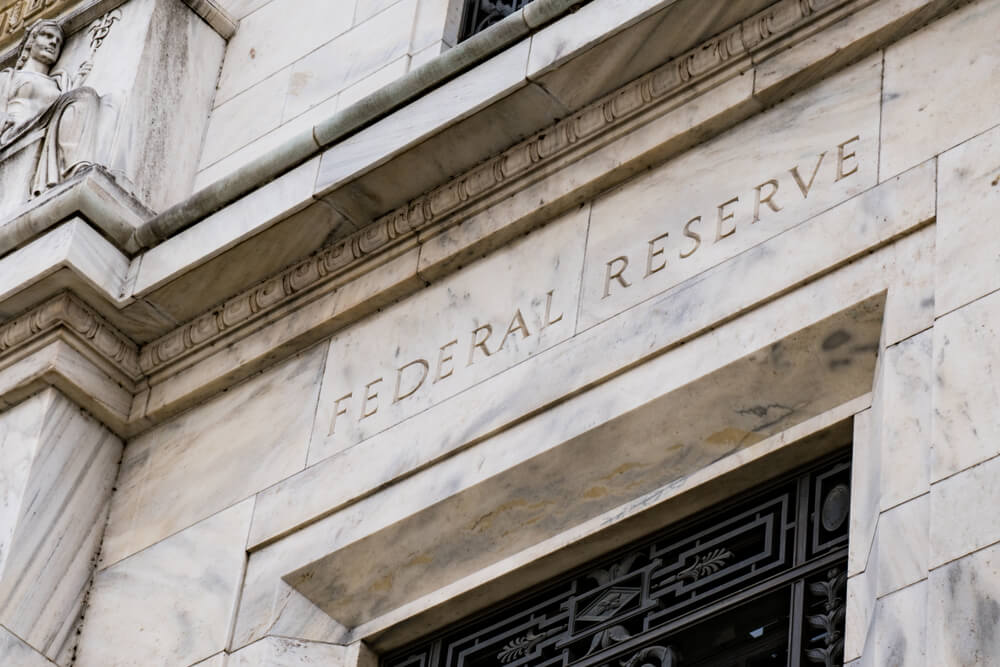Federal Reserve officials at their recent meeting believed the central bank could remain “patient” in deciding when to adjust interest rates, though some officials thought future rate hikes might still be needed.
“While some investors are betting that the Federal Reserve will be cutting rates by the end of this year, there’s not a lot in the minutes … to support that case.”
In minutes of the April 30-May 1 discussions released Wednesday, Fed officials noted that prospects for the U.S. and global economy had been improving, while inflation had fallen farther below the Fed’s 2% target.
Financial markets and President Donald Trump are hoping that the central bank will start cutting rates soon to bolster growth further. The Fed minutes, however, indicated little sentiment for rate cuts.
Instead, the minutes revealed “a few” participants say they thought more rate increases might be needed to keep low unemployment from triggering unwanted inflation.
“While some investors are betting that the Federal Reserve will be cutting rates by the end of this year, there’s not a lot in the minutes … to support that case,” said Mark Hamrick, senior economic analyst for Bankrate.com. “Borrowers and savers should largely expect the status quo for rates at least in the near-term.”
At its last meeting, the Fed kept its key policy rate unchanged in a range of 2.25% to 2.5%, where it has been since the Fed hiked rates for a fourth time last year.
That December rate boost contributed to a nosedive in financial markets as investors began to worry that the central bank was in danger of over-doing its credit tightening and could send the country into a recession.
Leading the criticism was Trump, who labeled the Fed his “biggest threat” and attacked Fed Chairman Jerome Powell and other Fed officials for not understanding financial markets.
In January, the Fed did an about-face in response to a worsening global outlook and other risks to growth and began signaling they would be “patient” in changing interest rates. While they had projected in December two more rate hikes this year, they now expect to hold steady for the year.
However, Trump has complained that the Fed needs to go further to support the economy by cutting rates and restarting a program to buy bonds to put downward pressure on long-term rates. In contrast, the Fed has been trimming its bond holdings although it has announced these reductions will come to an end later this year.
The minutes did not reveal support for the type of dramatic credit easing suggested by Trump. But there was discussion among Fed officials about the fact that inflation this year has moved further below the Fed’s 2% target.
“In light of recent, softer inflation readings, some (Fed officials) viewed the downside risks to inflation as having increased,” the minutes said.
But the minutes said that Fed officials still believed a return of inflation to the Fed’s 2% target was “the most likely outcome.”
At his May 1 press conference, Powell said Fed officials believed the recent slowdown in inflation was likely due to transitory issues, with inflation in coming months resuming its climb toward the Fed’s target.
The minutes, which were released with the customary three-week delay, cover the discussions among Fed board members and the Fed’s 12 regional bank presidents who make up the central bank panel that sets interest rates.
There are currently two vacancies on the seven-member board. The White House has resumed the search for candidates for those two spots, after former GOP presidential candidate Herman Cain and conservative commentator Stephen Moore withdrew from consideration.
One person who has been approached is conservative economist Judy Shelton, a long-time critic of the Fed who in the past had advocated the country return to the gold standard.
Interviewed Wednesday by CNBC, Shelton said she felt “this is a pivotal moment for the Federal Reserve.”
She said she believed the central bank needed to change its approach for setting its key benchmark rate back to past practices and get away from the current process of setting the rate by paying banks to hold excess reserves. She said the current method discourages banks from making more loans when they can earn a risk-free return on their reserves.
© The Associated Press. All rights reserved.
